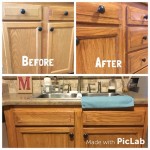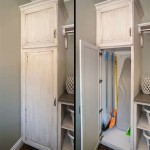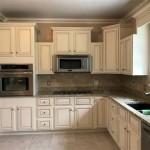A Comprehensive Guide to Kitchen Cabinet Crown Molding Size
Crown molding, an intricate and decorative element, adorns the upper edges of kitchen cabinets, adding an elegant finishing touch. Its size significantly influences the overall aesthetics and functionality of the cabinetry. Understanding the various dimensions available empowers homeowners and designers to make informed choices that align with their specific design goals.
Standard Crown Molding Sizes
Crown molding is typically available in standard sizes ranging from 3.5 inches to 6 inches in height. These dimensions offer a versatile range to complement different cabinet styles and ceiling heights:
- 3.5 inches: A petite size suitable for smaller kitchens or those with lower ceilings, creating a subtle decorative accent.
- 4 inches: A common size that provides a moderate amount of detail and definition without overpowering the cabinetry.
- 4.5 inches: A slightly larger size that adds more visual interest and a touch of grandeur, especially in larger kitchens with higher ceilings.
- 5 inches: A statement piece that commands attention and adds a touch of opulence to the cabinetry.
- 6 inches: The most substantial size, reserved for grand kitchens with soaring ceilings, creating a dramatic and imposing effect.
Matching Crown Molding to Cabinetry and Ceiling Height
Choosing the appropriate crown molding size requires considering the cabinetry and ceiling height:
- Cabinetry: Crown molding should be proportionate to the cabinet height. Taller cabinets can accommodate larger crown molding, while shorter cabinets require smaller sizes to maintain balance.
- Ceiling Height: The higher the ceiling, the larger the crown molding size can be. In kitchens with lower ceilings, it's important to avoid overwhelming the space with excessive molding.
Additional Considerations
Beyond standard sizes, several additional factors influence crown molding size selection:
- Kitchen Style: Traditional kitchens typically opt for larger crown molding, while contemporary kitchens may prefer smaller, sleeker profiles.
- Cabinetry Material: Crown molding should complement the cabinet material. Painted cabinets can handle bolder crown molding, while stained wood cabinets may prefer a more subtle profile.
- Personal Preference: Ultimately, the size of crown molding is a matter of personal preference. Homeowners should select a size that aligns with their desired level of ornamentation and complements the overall kitchen design.
Conclusion
Kitchen cabinet crown molding size plays a crucial role in enhancing the aesthetics and functionality of the space. By understanding the available standard sizes, considering the cabinetry and ceiling height, and incorporating additional factors such as style, material, and personal preference, homeowners and designers can make informed choices that create a cohesive and visually appealing kitchen.

11 Kitchen Cabinet Crown Molding Ideas For Your

Crown Molding For Shaker Kitchen Cabinets

Kitchen Design Details Learn About Crown Molding On Cabinetry

3 Types Of Kitchen Cabinet Moldings Wood Factory

Crown Mouldings On Varying Cabinet Heights Stonehaven Life

One Of The Easiest Ways To Truly Spruce Up Your Kitchen Cabinets Is Add Crown Molding Or Trim Th Diy Types

Faq Crown Molding For Cabinets Dura Supreme Cabinetry

Choosing Crown Moulding For Every Room Currier Lumber And Hardware

What Size Crown Molding For Kitchen Cabinets In 2024 Cabinet Large Sizes

Adding Crown Molding To Kitchen Cabinets Young House Love
Related Posts








